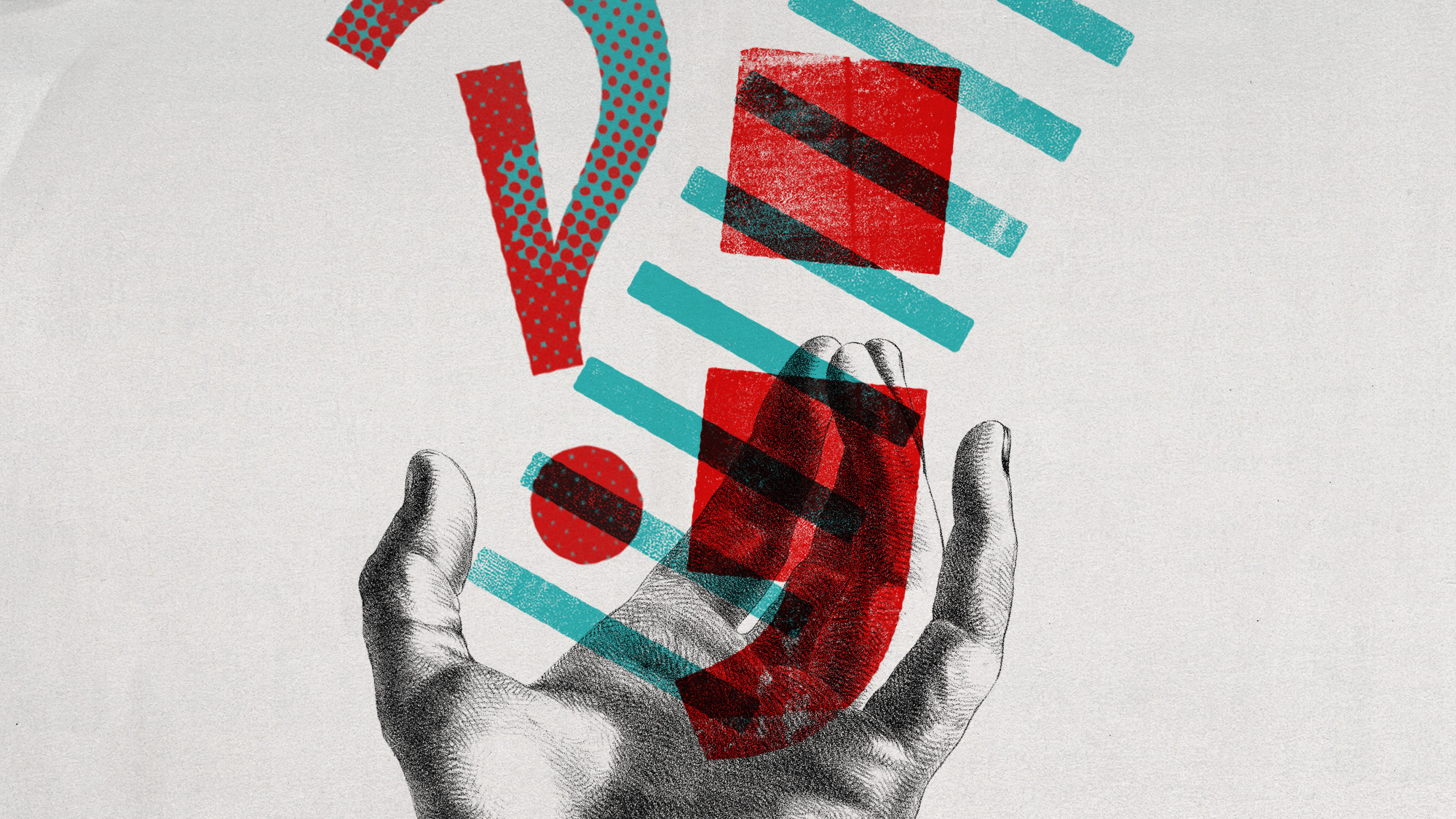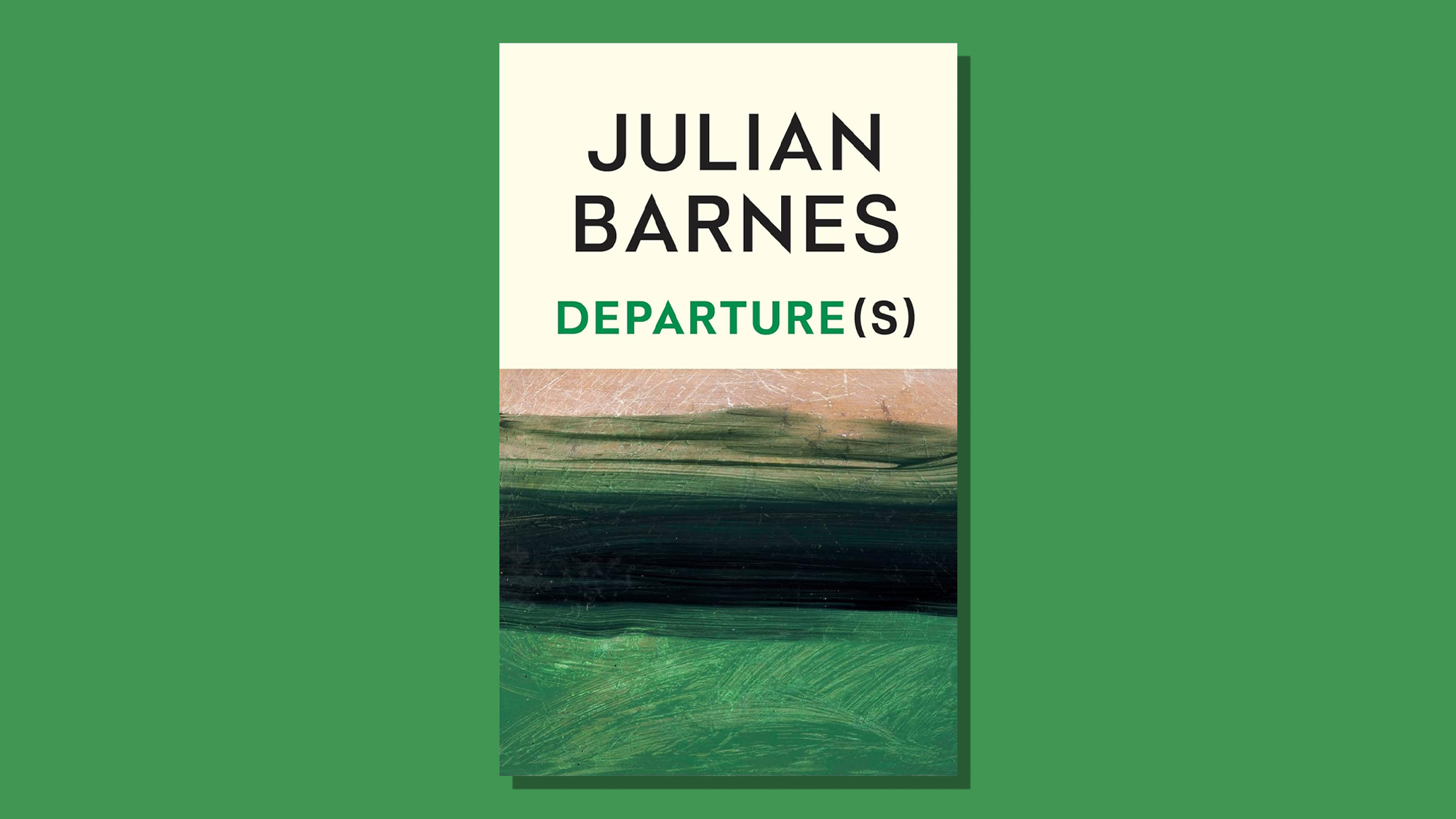The politics of punctuation
Semicolons get the silent treatment; AI makes a dash for dominance

A free daily email with the biggest news stories of the day – and the best features from TheWeek.com
You are now subscribed
Your newsletter sign-up was successful
"Rend your cheeks and rub ashes into your hair," said The Spectator, for the semicolon, that "most elegant, elusive of punctuation marks", is all but dead.
Use of the semicolon (in lists, or to join two separate clauses into a single sentence) has almost halved since 2000 and, according to research by language service Babbel, many young Brits never use it at all.
'Bulwark against civilisational decline'
It's not that young people are "rejecting" the semicolon outright, said The Telegraph; "rather, they fear using it incorrectly". The mark, designed to introduce "a somewhat longer breath" than a comma into a sentence, has been increasingly abandoned by contemporary writers and is now often misunderstood by Gen Z.
The Week
Escape your echo chamber. Get the facts behind the news, plus analysis from multiple perspectives.

Sign up for The Week's Free Newsletters
From our morning news briefing to a weekly Good News Newsletter, get the best of The Week delivered directly to your inbox.
From our morning news briefing to a weekly Good News Newsletter, get the best of The Week delivered directly to your inbox.
But it's far from the first punctuation casualty, said The Indian Express. The pilcrow, a mark used to signify the start of a new paragraph, slipped "into obscurity" a few hundred years ago. And, in modern times, the apostrophe is "under daily siege".
Gen Z, raised on texting and social media, have sharply turned away from traditional punctuation, which they feel "comes across sounding passive-aggressive" or "unnatural", said The Washington Post. Instead, they punctuate with emojis, which act as "tone tags" to better capture a message's intent.
Yet, "like napkins, black tie and having a glass of champagne before lunch", the use of the semicolon is a "bulwark against civilisational decline", said The Spectator. Despite what younger generations are doing, we should resolve to let "this most noble of punctuation marks flourish anew".
'The ChatGPT hyphen'
The semicolon may be endangered but there is one form of punctuation that seems to be flourishing: the em dash. And that's probably down to artificial intelligence.
A free daily email with the biggest news stories of the day – and the best features from TheWeek.com
Sometimes called the long hyphen, the em dash – used to add extra information, in parenthesis – was first seen in the plays of Ben Jonson and some editions of William Shakespeare's plays, said Prospect. But it's now such a feature of chatbot responses, it's become known as "the ChatGPT hyphen".
So, are we influencing artificial intelligence's punctuation, or is it influencing ours? "Online detectives have unfairly pounced" on the em dash as a dead giveaway for copy-and-pasted AI writing , said The Boston Globe, but being "em-dash-happy" isn't something we should give AI "credit" for. This punctuation belongs to the people and the very "literature it was trained on".
Suspicion of the em dash "speaks to our mounting paranoia about automated communication", said Rolling Stone. Ultimately, technology may be shaping our grammar more than we would care to admit.
Rebekah Evans joined The Week as newsletter editor in 2023 and has written on subjects ranging from Ukraine and Afghanistan to fast fashion and "brotox". She started her career at Reach plc, where she cut her teeth on news, before pivoting into personal finance at the height of the pandemic and cost-of-living crisis. Social affairs is another of her passions, and she has interviewed people from across the world and from all walks of life. Rebekah completed an NCTJ with the Press Association and has written for publications including The Guardian, The Week magazine, the Press Association and local newspapers.
-
 Political cartoons for February 15
Political cartoons for February 15Cartoons Sunday's political cartoons include political ventriloquism, Europe in the middle, and more
-
 The broken water companies failing England and Wales
The broken water companies failing England and WalesExplainer With rising bills, deteriorating river health and a lack of investment, regulators face an uphill battle to stabilise the industry
-
 A thrilling foodie city in northern Japan
A thrilling foodie city in northern JapanThe Week Recommends The food scene here is ‘unspoilt’ and ‘fun’
-
 The 8 best superhero movies of all time
The 8 best superhero movies of all timethe week recommends A genre that now dominates studio filmmaking once struggled to get anyone to take it seriously
-
 Wuthering Heights: ‘wildly fun’ reinvention lacks depth
Wuthering Heights: ‘wildly fun’ reinvention lacks depthTalking Point Emerald Fennell splits the critics with her sizzling spin on Emily Brontë’s gothic tale
-
 Josh D’Amaro: the theme park guru taking over Disney
Josh D’Amaro: the theme park guru taking over DisneyIn the Spotlight D’Amaro has worked for the Mouse House for 27 years
-
 Heated Rivalry, Bridgerton and why sex still sells on TV
Heated Rivalry, Bridgerton and why sex still sells on TVTalking Point Gen Z – often stereotyped as prudish and puritanical – are attracted to authenticity
-
 The best fan fiction that went mainstream
The best fan fiction that went mainstreamThe Week Recommends Fan fiction websites are a treasure trove of future darlings of publishing
-
 Must-see bookshops around the UK
Must-see bookshops around the UKThe Week Recommends Lose yourself in beautiful surroundings, whiling away the hours looking for a good book
-
 Departure(s): Julian Barnes’ ‘triumphant’ final book blends fact with fiction
Departure(s): Julian Barnes’ ‘triumphant’ final book blends fact with fictionThe Week Recommends The Booker prize-winning novelist ponders the ‘struggle to find happiness and accept life’s ending’
-
 Golden Globes affirm ‘One Battle,’ boost ‘Hamnet’
Golden Globes affirm ‘One Battle,’ boost ‘Hamnet’Speed Read Comedian Nikki Glaser hosted the ceremony